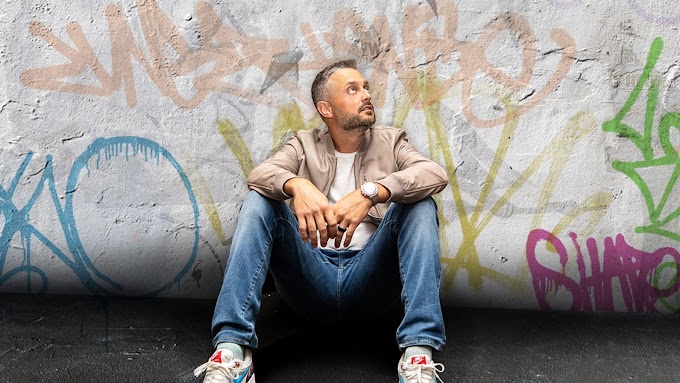Cristiano Ronaldo’s return to Manchester United in 2021 felt like the opening scene of a blockbuster sequel. Shirt sales exploded. Fans went full Shakespearean with their joy. Old Trafford was electric. For a brief moment, it felt like United had just rolled back the years.
But as with many sequels, the excitement didn’t last.
Ronaldo’s second stint at Manchester United promised magic. What it delivered was chaos, conflict, and eventually, a breakup that played out like a public divorce. And at the heart of it all was one man with a vision and no time for nostalgia—Erik ten Hag.
So, why did Ten Hag decide that Cristiano Ronaldo, one of the most decorated players in football history, had to go?
Let’s Rewind the Tape
August 27, 2021. United fans were practically levitating. Cristiano was coming home. In just half a day, over 400,000 Ronaldo shirts were sold. That’s not hype—that’s hysteria. On paper, the move made sense: experience, goals, box office appeal. On the pitch? It was complicated.
United’s season under Ole Gunnar Solskjær started wobbly. That wobble turned into a freefall. Ole got the boot. In came Ralf Rangnick, a football theorist with a whiteboard full of ideas and no real plan for managing egos. Ronaldo was not amused. In an interview months later, he basically called the appointment a joke. His exact words? “I didn’t understand it.”
Still, Ronaldo did what he could. He scored goals. He brooded. He got United to sixth place. Not glamorous, but not a disaster either.
And then came Ten Hag.
The Dutchman's Arrival: Clean Slate, Clear Mind
Erik ten Hag was fresh off a successful spell at Ajax, known for discipline, team-first football, and making even the most stubborn prima donnas toe the line. So, what did he see when he looked at Manchester United?
A team built around one man. One gravitational force pulling all play toward himself. It wasn’t a football club—it was a tribute act.
Ten Hag didn’t want that. He wasn’t there to babysit legends. He was there to build a system. A structure. A functioning unit where everyone ran, passed, pressed, and played for each other.
With Ronaldo on the pitch, that was a pipe dream.
Let’s be fair—Cristiano didn’t just ignore the script; he rewrote it. For nearly two decades, teams had built around him. And for good reason: he scored more goals than most strikers could dream of. But Ten Hag wasn’t after goals at any cost. He wanted cohesion. Pressing. Fluidity. And above all, balance.
Cristiano? He wanted the ball at his feet and defenders in his wake.
You see the issue.
The Silent Cold War
At first, Ten Hag played it diplomatically. Took Ronaldo off early. Gave him limited minutes. Said all the right things at press conferences. But make no mistake—he was turning the volume down slowly.
The goal wasn’t to humiliate Ronaldo. The goal was to unhook the team from his orbit.
But it didn’t go unnoticed. Every substitution raised eyebrows. Every snub made headlines. And then came October 19, 2022.
United were playing Tottenham. Ronaldo was benched. As the clock ticked down, he’d had enough. With minutes left on the clock, he walked down the tunnel. No eye contact. No handshake. No goodbye.
And just like that, it was over.
A month later, his departure was official. He gave a tell-all interview to Piers Morgan. He aired out the locker room. The tension, the lack of respect, the betrayal—it all came tumbling out.
Ten Hag, meanwhile, didn’t flinch. His message was clear: no one, not even Ronaldo, was bigger than the plan.
Ego vs System
Let’s not sugarcoat it—Cristiano is an elite competitor. He trains like a man possessed. He holds himself to inhuman standards. But on the pitch? He demands the spotlight. When a teammate has a better angle, he often still goes for goal. That’s his nature.
And for a while, that worked. At Real Madrid, Juventus, even during his first United stint, teams bent around him and got results. But modern football has shifted. High pressing, compact defending, rotation—these aren’t optional anymore.
Ronaldo didn’t fit the new mold.
And Ten Hag wasn’t interested in retrofitting his system to accommodate a player who wouldn’t press, wouldn’t adapt, and wouldn’t share the stage.
This wasn’t just about performance. It was about philosophy.
Football’s Fork in the Road
The Ronaldo vs. Messi debate has always had an emotional core. One is flair, the other fire. Messi slips through defenses like smoke. Ronaldo bulldozes through them. But look closely at their later careers, and you’ll notice something.
Messi adjusted. He moved deeper, became more of a playmaker. He fit into systems. He passed. He created. He learned to do less, better.
Cristiano? He still wanted to be the tip of the spear, even when the team needed something else.
That’s not failure. That’s a choice.
And Ten Hag made his.
He chose structure over stardom. Team over individual. Even when it meant letting go of a legend.
Aftermath and Echoes
Since Ronaldo’s exit, United haven’t been perfect. But Ten Hag has made one thing very clear: he’s in charge. Discipline has improved. Player roles are clearer. The team looks more like a machine and less like a stage.
Was it harsh? Maybe.
But consider this: every manager talks about building a culture. Few have the guts to rip out the roots to plant something new. Ten Hag did. And in doing so, he won two trophies in two years.
Ronaldo moved on to Al Nassr in Saudi Arabia. He’s still scoring, still flexing, still being Ronaldo. But that chapter with United is closed. It was never going to end with a standing ovation.
Sometimes, it’s not about who’s right. It’s about who fits.
And in Ten Hag’s Manchester United, Ronaldo just didn’t.




